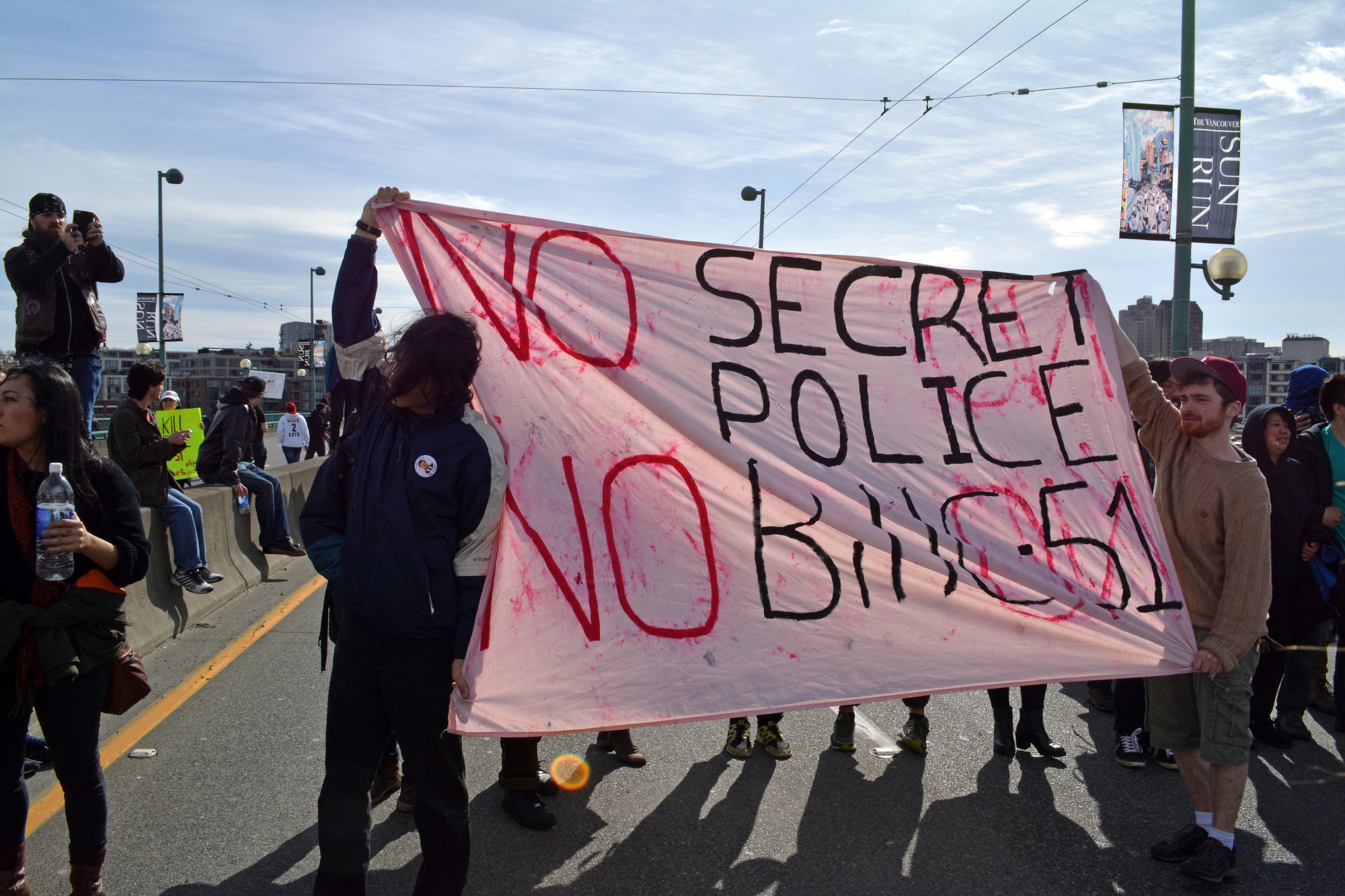The Liberal government has recently released a document called Our Security, Our Rights: National Security Green Paper. The Green Paper was meant to kick off a series of public consultations by providing a list of helpful speaking points. The document opens with a stated goal to meet the Liberal Party election promises to amend the “problematic elements” of the Anti-Terrorism Act (Bill C-51).
Though after reading through its many sections, it seems apparent to me that the Green Paper was written to defend the act from its many criticisms. A ridiculous reversal in the light of Trudeau’s promises.
The Liberal government has made it clear that they will not be using a critical lens to understand the consequences of this bill. The government will instead choose to fumble with security theatre as opposed to taking an informed stance that balances the needs for security with our democratic rights to Charter freedoms.
Even the Privacy Commissioner had something to say about the tone of the Green Paper. Privacy Commissioner Therrien reported, “I’m also troubled by the tone of the government’s discussion paper — it focuses heavily on challenges for law enforcement and national security agencies, which doesn’t present the full picture. Canadians should also hear about the impact of certain surveillance measures on democratic rights and privacy. A more balanced and comprehensive national discussion is needed.”
If the Green Paper is to be the primary document for government engagement with the public on one of the most controversial bills in Canadian history, then the discussion is already rigged in favor of a bloated national security apparatus. This process of public consultation is a farce in the face of a government that has been calling for transparency and accountability.
The Green Paper is a delay tactic for the Liberal Government, allowing the “problematic elements” to become more embedded in Canadian intelligence and policing.
This is not to say that I am against the existence of organizations like the Canadian Security Intelligence Service (CSIS) or the Communications Security Establishment (CSE) — however, echoing the Privacy Commissioner’s concerns, there must be mechanisms in place to hold these organizations accountable to the public interest.
We need conversations. Unfortunately, academics who are in a position to oppose such bills are unbelievably silent.
The loudest voices have been Craig Forcese and Kent Roach, Canadian legal scholars who specialize in national security law. In their recent response to the Green Papers they have highlighted some major concerns. Here are some highlights: Expanded powers of CSIS to conduct threat reduction; Reversal of the Courts role in upholding the Canadian Charter of Rights and Freedoms, to sanctioning violations of it; and embedding the ability to target “threats” unrelated to terrorism.
Since the advent of CSIS, they were mandated to only collect intelligence. They were not allowed to engage physically with any targets. The expanded powers provided to them by C-51 allow CSIS to interrupt or disrupt terrorists (or other “problematic” targets). They are also given the ability to obtain warrants in secret that violate the Charter. According to a report from the Security Intelligence Review Committee (SIRC), these powers have been used approximately twenty-four times.
These expanded powers are connected to the controversial role-reversal of the courts. According to Forcese and Roach, the courts are traditionally responsible for upholding the Charter to protect the rights and freedoms of Canadian citizens. However, under Bill C-51, the courts are now able to, in secret, issue warrants to CSIS to sanction violations of the Charter.
According to legal scholar Ryan Alford, this new power allows the government to sanction indefinite arrests without explicit cause. This results in the court being able to sanction violations of non-derogable human rights set down by the International Covenant on Civil and Political Rights (ICCPR). This is an International agreement that the Canadian government agreed to uphold. And the UN has already called out it’s concerns about such things.
Finally, Bill C-51 kicks the doors wide open for intelligence and policing agencies to be able to use Anti-Terrorism laws on Canadians who are not terrorists. The reasoning for this is rooted in recent history. After the 9/11 attacks, national security became a major concern. This led to a new category of threat called Multi-Issue Extremism (MIE) that inevitably came to encompass hosts of visible minorities including “Aboriginal extremists” and environmental activists.
Activists are already targets of the national security apparatus. We can deduce from this that C-51 will become a tool to dismantle “illegitimate protest,” including groups like Idle No More and Greenpeace who practice strategies of civil disobedience.
The security theatre continues with a constant flow of plot twists. The public consultation process seems to be the first step in positioning the Liberal Government to defend the “problematic elements” of the Anti-Terrorism Act. This is no surprise.
However, this is still a Public Consultation. We have until December 1 to come up with responses — and I urge you to contribute. Even if the state ignores the public contributions, at least there will be a paper trail of concerned citizens. They can’t say they had the support of the people.



